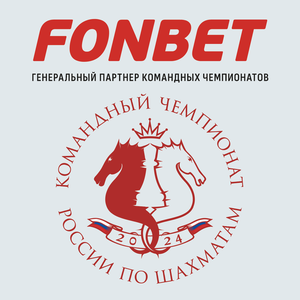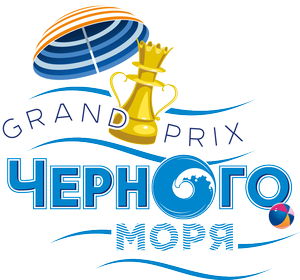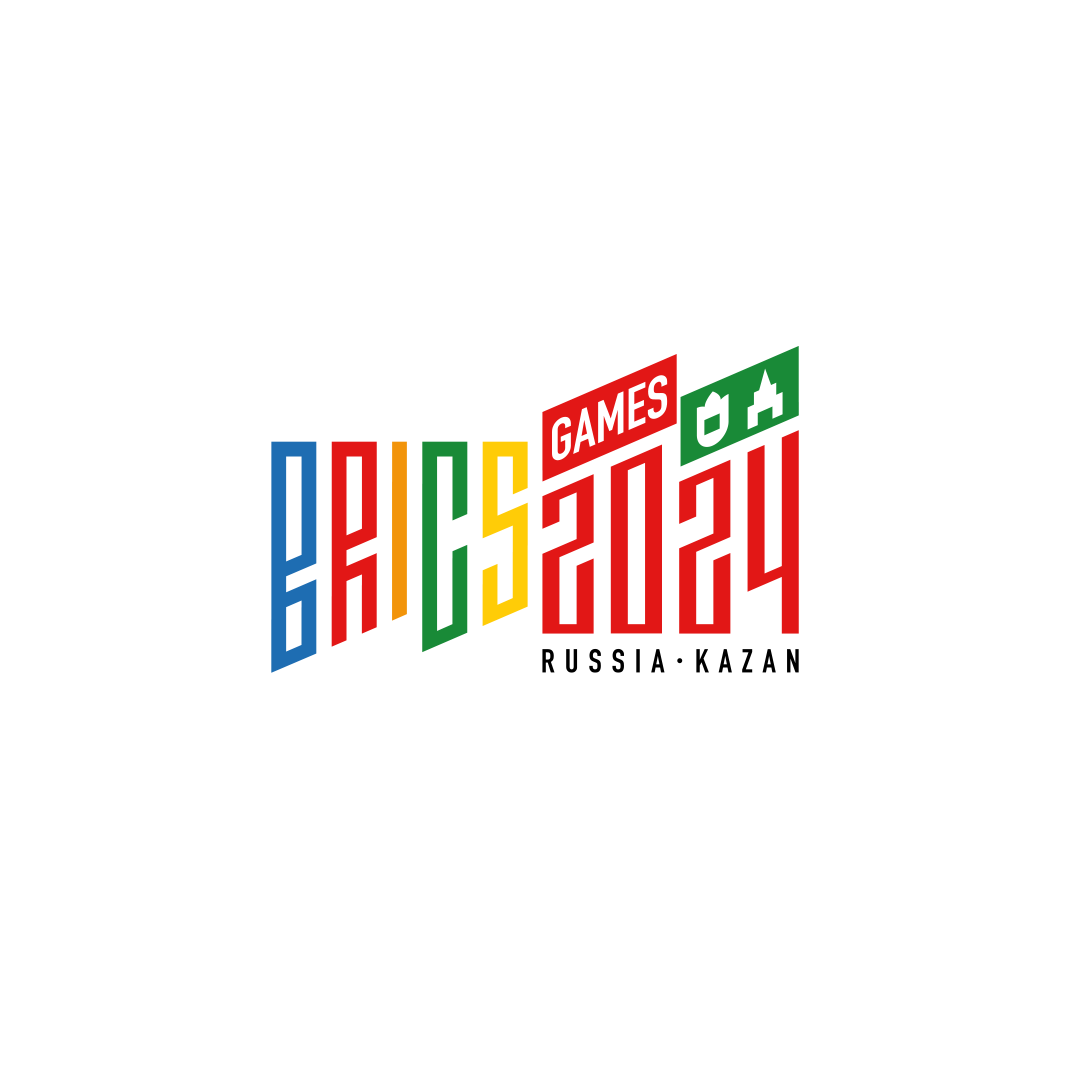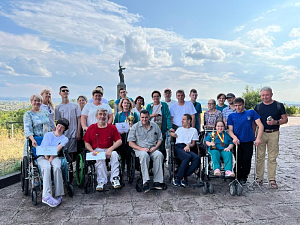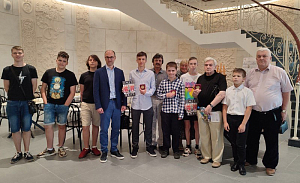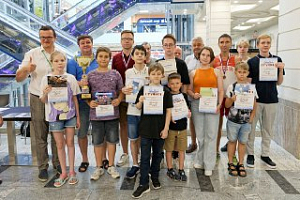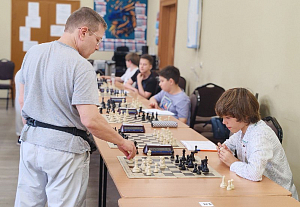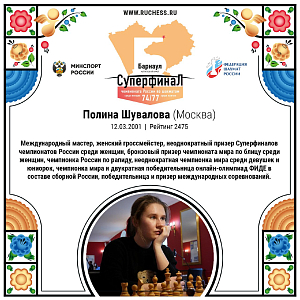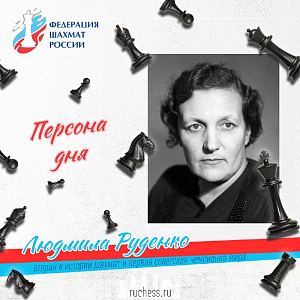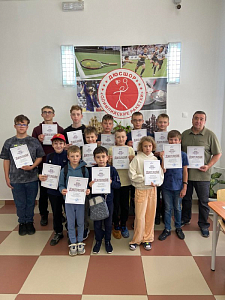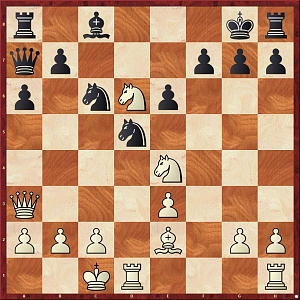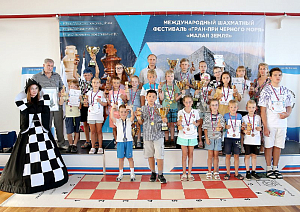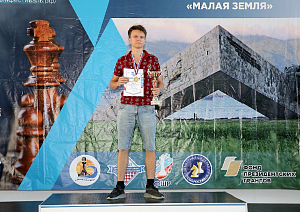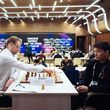14 November 2015
Mair Mamedov: Talent Must Be Supported!
The Azerbaijan Chess Federation's Vice President and World Cup Director answered Vladimir Barsky's questions.
The interview was published in 64 Chess Review magazine No. 10/2015
– Mair, I would like to discuss with you topics like the organization of top-level chess events and the development of chess in Azerbaijan. But first please tell us a little about yourself and your chess hobby.
– I really fell for chess shortly before the legendary Fischer ― Spassky World Championship Match (1972). That encounter sparked huge interest around the world: I remember well how we waited for the Izvestia newspaper back then to study the texts of the games. After that I got to really love chess, even though this love came too late for serious studies, of course. But I liked playing chess and going to the chess club with my friends.
– Are you from Baku?
– Yes, I was born here in 1962. Before the late 1970s, I was simply interested in chess, I played, but without any particular achievements. Then I started participating in various problem-solving competitions and in 1980 won one of them, which was dedicated to the 50th anniversary of the Azerbaijan Lenin Communist Youth League. The competition was held by Alexander Sarychev, a great chess composer. He invited us (the winners of the competition) to a televised award ceremony.
I also took part in other contests, those held by the Vyshka and Vecherny Baku newspapers and others; I "cracked" one chess problem after another, I was fascinated by Loyd, Loshinsky, and other chess composers. My interest in chess was also heated by various meetings and talks with Evgeny Mitrofanov, a friend of mine and one of the most prominent chess composers in Azerbaijan.
I was one of three winners at the televised event, and Garry Kasparov also attended that ceremony that is so memorable to me. He had just come back from a major international tournament that he won with flying colors ― in Banya-Luke (Yugoslavia) if I am not mistaken.
The ceremony was moderated by international arbiter Faik Gasanov, and it was also him who briefed us before we participated in the Chess Club TV show. Faik was the founder of this show and he had been holding it for seven or eight years by then. Alexander Sarychev participated in the show on a regular basis: he organized chess problem solving contests and gave lessons on chess composition. This was how I met Alexander. And of course, it was very interesting to see Garry Kasparov, the rising star, nearby. By then we already knew that he was kind of a miracle.
– I believe that thanks to Kasparov's ascent to the chess Olympus many people in Azerbaijan took an interest in chess?
– Of course! Kasparov was hugely popular in our republic and was entitled to enormous privileges. The country's government headed by the national leader Heidar Aliyev created the best conditions for him, realizing what cutting this "priceless diamond" needed to shine on the chess horizon in all his glory.
So, to continue the story of my evolving as a chess composer, I would mention that Alexander Sarychev noticed us and invited us to the club where he gave lessons and where Azerbaijan's most famous chess problem composers got together.
At first we attended the Spartak sports club, and then the Trudovye Rezervy club. This was where I met the chess composer of genius Mejnun Vagidov, as well as Rauf Aliovsatzade and Zuleikha Eivazova, whom we regarded as our classics. They also worked on a problem theme that was dubbed the Azerbaijan Novotny and the Baku Novotny, and did various "reverse" themes that were all the rage then. Terms appeared in chess composition that reflected our chess composers' contribution to the global chess composition development.
Alexander Sarychev brought us all together and was the leader of chess composition in Azerbaijan. Those who aren't familiar with his work should look at his chess study with the move Kc8!!
That's how they called Sarychev later: the Kc8 Man!
As for Mejnun Vagidov, he mostly composed reverse checkmate puzzles, he was an unsurpassed master in that domain. We went to the club with great interest, and for me those Monday studies became a real feast.
– Did you try to compose anything on your own?
– Vagidov taught us the basics of problem composition, and things got rolling, I started making some progress. I even got to the complex things such as the Banny theme, the Vladimirov theme, and so on. Those were trendy and very complicated reverse play themes. And we started with very basic things, of course: distraction, the Grimshaw theme, Novotny, etc.
As an example, I can show you several puzzles that I composed in those years.
1. Mamedov, Akchurin
Azerbaijan ― Belarus match, 1983
3rd prize
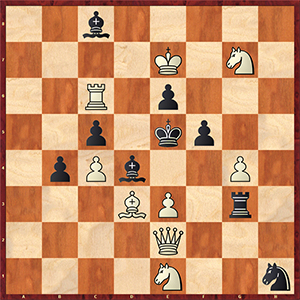
Mate in 2
2. Mamedov
"Chess" (Baku) 1983
Prize
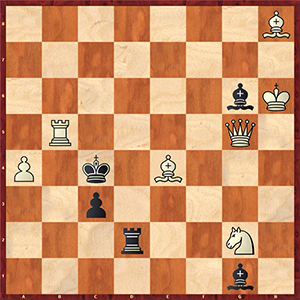
Mate in 2
3. Mamedov
"The Urals Problem Composer", 2007
1st honorable mention
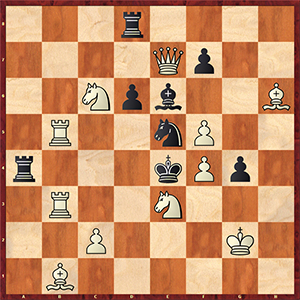
Mate in 2
Solutions:
1. 1.Qb2? (2.Rxc5#) 1…Bb7 2.Re6# 1…Rxe3!, 1.Qh2? (2.Nf3#) 1…f4 2.Qh5# 1…Bxe3!.
1. Nxe6! (2.ed#) 1…Bxe3 2.Rc5#, 1…Rxe3 2.Nf3# (1…Bxe6 2.Rxe6#).
2. 1…Bd4 2.Qd5#, 1…Rd4 2.Qc5#. 1.Qf6? (2.Qxc3#) 1…Bd4 2.Qe6#, 1…Rd4 2.Qc6# 1…Rd3!
1.Qg3! (2.Qxc3#), 1…Rd4 2.Qc7#, 1…Bd4 2.Bd5#.
3. 1.Nf1! (2.Ng3#),1...Bxb3 2.cxb3#,1...Nd3 2.cxd3#; 1...Nxc6 2.c3#, 1...Kxf5 2.c4#. The Albino theme, with four different moves of the white pawn.
In those years, Soviet team championships for chess composition were held, and I participated in them several times. The themes for problem compositions were determined in Moscow. By then I already was part of the Azerbaijan national team.
This was a fascinating job: we came up with ideas, exchanged them, created compositions, and then the entire team looked for mistakes and dual solutions and eliminated them. There were no computers back then, we did everything by ourselves. I would like to point out that I learned a lot from Vagidov.
He worked at the Azerbaijan State Oil Academy (when I was young, it was called the Azizbekov Oil and Chemistry Institute of the Order of the Red Banner of Labor), he was an associate professor and a candidate of technical sciences.
A terrorist attack occurred in Baku on April 30, 2009: a lunatic entered the Academy and began to shoot at everyone around. Vagidov happened to be in the fire line at that moment and became one of the victims.
– Terrible!
– Such a remarkable and extraordinary person, and he died such an absurd death...
Sarychev took our studies very seriously. We were looking forward to our Monday classes, of course, but he wasn't idle the rest of the week: every Thursday he signed envelopes and sent out new invitations to participate in the national team's meetings.
In 1984, I was called up to the army; he knew it, of course, but still kept sending me letters. When I came back home two years later, I found heaps of those invitations! In a word, 1979 - 1987 were the years of romantic infatuation with chess composition and chess in general for me.
– And where did you serve in the army?
– In Nikolaev, Ukraine.
– You probably didn't have any chance to practice chess there?
– When I went to the army, Garry was losing to Karpov 0-4. During the service, I had to plunge in the army life and the first months were far from easy. It was difficult for a young Soviet soldier to find information about chess anywhere. The hardships of military service prevented me from following the match and discouraged me completely from any hobby whatsoever, and, to be honest, I lost every hope of Garry's success. When the service started, I even forgot that the match existed.
Before the New Year I remembered about chess, I wanted to find out how the match ended, but there was no information available. I was still a "rookie" back then, and a "rookie" can't watch TV. When the New Year came, for example, I was on duty. Then I got sick and had a long stay in hospital, and when I got back I accidentally found a piece of our division's newspaper in which someone had wrapped some bread. And suddenly I see there that Kasparov has won the 47th game, and the score is 5-2 in Karpov's favor. I was dumbfounded! How come the 47th, what's going on there?!
To be honest, that was one of the greatest shocks in my life.
– Your story reminds of my own. I was called up to the army in 1987, when the match in Seville took place. That was quite a lousy year for me: I was stuck in the army, and on top of that Kasparov was losing! I was a great fan of Kasparov back then; but then I stopped supporting him.
– All young people were his fans, I think. I was still in the army when Garry finally became the world champion. I was already an "old-timer" then and could live the life of a normal person, almost a civilian. We were looking forward for TV chess reviews by Suetin and Taimanov, and tried to guess from their intonations who was rooting for whom. It was clear that Suetin wasn't Kasparov's greatest fan, and we always waited for Taimanov's comments. Do you know how he is doing now?
– I saw him recently when I was in St. Petersburg. He was with his wife at the opening of the Porcelain and Chess museum. Mark looked well, thank God!
– May he live many, many years.
When I came back from the army, the crazy Kasparov ― Karpov matches continued. One of the most unforgettable impressions of that time was the 22nd game of the 3rd match in Leningrad, when the score was equal.
– Knight to d7?
– Knight to d7! I even had a sweater knit with “Knight to d7”!
– Did you knit it by yourself?
– No, of course not (laughing), I ordered it. Knit sweaters were in fashion then, all Soviet journals printed on their last pages various schemes on how to knit them. And all the female employees of the research institutes within the Soviet Union’s immense territory had perfected the skill of transferring those schemes into real things (in their free time, and they had plenty of it).
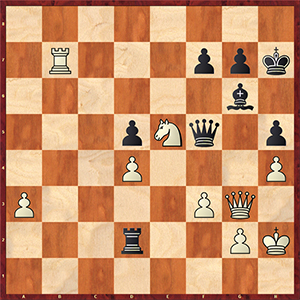
In this position, Kasparov wrote down the move 41. Nd7!! before adjourning the game
And the Seville match was simply fantastic! I already was a post-graduate student then and did some moonlighting at nighttime as a manual worker at the Baku Electric Mechanical Plant. I left my workplace to listen to the match reports during my shift, and the workshop deputy chief didn’t like it. Before the resumption of the 24th game, I told him: “If Kasparov wins, ask for anything you want.” And what he said was “I want a car.” A fool! I told him I could only buy him a meat grinder...
Well, there were all kinds of funny stories.
Then I finished the post-graduate course, wrote a thesis and plunged into business activities. I followed the 1990 match, of course, but not so attentively. And in 1997-1998, when the business got going and some prospects emerged, and when Heidar Aliyev got back to power and the country began to revive, I noticed that we had talented young chess players growing up. I was pleased to find out (and I considered myself to be a simple chess amateur again) that Heidar Aliyev decided to support them. All newspapers wrote about it, and there were TV reports, too. I also noticed that we had some very promising children.
Berik Balgabaev, Azad Ragimov, Mair Mamedov and Faiq Gasanov
– It seems that Heydar Aliyev had always liked chess, it was for a reason that he supported Kasparov!
– As a Soviet Union leader, Aliyev understood the significance of chess in the then bipolar world. This was a very powerful propaganda tool. And then, why did Moscow, Leningrad and Ukraine had strong chess players and we didn’t? When Garry emerged, the desire to support him was quite natural. Throughout the whole time of Garry’s development as a player, Aliyev protected him from the problems and hardships brought on by the existing power system and helped him to resolve the problems emerging, taking a father’s care of the young talent. Kasparov was the darling of all our hearts.
– And whom did Aliyev receive in the late 1990s?
– Teimour Radjabov, Vugar Gashimov, Rauf Mamedov and Gadir Guseinov were there. Nothing at all was known about Shakhriyar Mamedyarov then.
– Did he develop more slowly?
– His chess performance improved very slowly, and no one took him seriously at some point. I remember that his international rating became slightly above 2500 around 2001, and everyone thought that it had been miscalculated and would “deflate” quickly. But Shakhriyar was already very strong!
– And he won two youth world championships in 2003 and 2005.
– Yes, Shakh’s strength grew slowly but surely.
Once I learned from my friends by accident that an Internet match Radjabov-Bu Xiangzhi was played. The match was organized by an Israeli company, and I remember that independent observers surveyed both players. The Internet only started to gain ground then. I came to the match together with Faiq Gasanov and talked to Teimour’s father whom I knew a little before that.
– And what is the importance of holding major chess events, in your opinion?
– Azerbaijan has recently become very ambitious in terms of hosting large-scale sports events. Next year, for example, we are organizing Formula 1, have you heard about it?
– No. Where?
– In the city center, like in Monaco and Singapore! And in 2017 we are hosting the Islamic Solidarity Games, that’s a top-level sports event.
– Is it bigger than the European Games, or about the same?
– Probably bigger, because this is a long-standing event now. The European Games were held for the first time, and the decision on holding them was only taken in 2012, so we had to build many structures, including the Olympic stadium, within just two years.
About 6,000 athletes from 50 countries participated in the First European Games. I really hope that the event already found a proper place in the global sports calendar. And the Islamic Solidarity Games have been held for many years (for the 4th time), so this will be a competition of a higher level. Athletes from 57 countries have been invited to take part in that large-scale sports event in Azerbaijan in 2017.
We are also hosting the U17 Euro Cup and the World Chess Olympiad in 2016. I’d like to point out that athletes from 172 countries participated in the Tromso Olympiad in 2014. I hope that we will see even more countries represented at the forthcoming Baku Olympiad.
In 2020, we will have four matches of the UEFA Euro 2020. Michel Platini is a great innovator, and he decided that the Euro 2020 Finals would be held in various European cities. Russia will host the matches in St. Petersburg.
Mair Mamedov with the Ambassador of Russia to Azerbaijan Vladimir Dorokhin
– So major chess contests fit well into Azerbaijan’s overall strategy for sports development?
– Yes. Chess tournaments have long been held in Baku: the legendary Soviet championships in the 1960s-1970s, and then international tournaments started in the early 1980s. Then there was a pause, even though small tournaments like Baku Open or the city cup were held, and chess players from Georgia, Iran and Turkey, and sometimes from Russia, came there. The largest tournaments in the history of independent Azerbaijan (before the Gashimov Memorial in Shamkir) were women’s international tournaments, which I also helped to set up: in Sheki in 2005 and in Baku in 2007. The first tournament was won by Lela Javakhishvili (Georgia), the second by Monika Socko (Poland).
In 2008 we held an event of a new format (within FIDE): a stage of Men’s FIDE Grand Prix, in which our grandmaster, Vugar Gashimov, who died an early death, was among the winners. Then we submitted a bid for holding the 2011 Candidates’ cycle, but Levon Aronian didn’t want to play in Baku, and we were forced to move to Kazan. Two our guys, Radjabov and Mamedyarov, played in the Candidates’ matches. Radjabov had won this right, and Mamedyarov was a nominee from Azerbaijan, but they both had to play in Kazan. This was a bit weird, but I would like to thank the Russian Chess Federation for lending us a helping hand in that complicated situation and granting us our legitimate right to appoint a nominee from our federation for the competition.
The same thing happened in 2013, and we had to go to the faraway London.
Also last year, we held the 1st stage of the FIDE Grand Prix 2014-2015 series.
– How did you decide to establish the SOCAR team?
– Our guys played around in different countries and clubs. Teimour had won several European Champions’ Cups playing for various teams, such as Sarajevo’s Bosna or the French NAO. And Mamedyarov kept complaining, saying that if we had had our own club, they wouldn’t have wandered around different countries. Thus the idea of creating our own club came up. Granted, a purely national club can’t achieve big tasks, unfortunately, so we had to “dilute” it with strong “mercenary” players from other countries.
– But SOCAR also has a farm club, where the best young Azerbaijan players have been brought together?
– Yes, it was set up exactly to create a reserve for the Olympiad. We will probably abstain from participating in club competitions next year because the Olympiad is more important for us. As one of the main organizers, I will have to get fully involved in the issues required for the proper organization of the Olympiad.
– Your team has become much stronger after Аrkadij Naiditsch started playing under your banners. How long did it take to accomplish this transfer?
– We had always wanted to become stronger, and we were looking for a strong player who would be able to change the federation and wouldn’t spoil the climate within the team. Naiditsch speaks the same language with the team, to begin with; secondly, he is on friendly terms with all our players; and thirdly, he was well accepted by Alexander Khalifman, – our team’s captain, who has a very good opinion of Arkadij.
Strange as it might seem, Naiditsch contacted us himself, though I should admit that I was also looking for a proper candidate under a request from the federation’s chief Elman Rustamov.
Naiditsch informed us that he had ongoing conflicts with the German Federation. After a while, I contacted him myself, and then started talks with the German Chess Federation’s leadership; and I have a very good relationship with them. They said, “Yes, we’ll let Naiditsch go, no problem.” The two sides probably got sick of each other!
So this transfer didn’t harm anyone, everyone was happy, and all is in perfect order in our team. Most importantly, I liked it that Naiditsch agreed to move to Baku. He obtained a residence permit and lives and works here together with his wife. Naiditsch’s transfer to the Azerbaijan Chess Federation doesn’t mean that he will always be guaranteed a place in the team. One of the main conditions for getting into the team will be the FIDE rating and performance stability. If our other players keep growing and he doesn't, then Naiditsch might not make it into the team.
Obviously, Teimour and Shakhriyar are our undisputable leaders. As for the other places, we always had some “stable instability”, you know.
– Vugar Gashimov was also in the team…
– When Vugar, who will always be in our memory, played, the team was more balanced. True, we couldn’t achieve anything at Olympiads, but in 2009 we became the European champions, and Gashimov played a crucial role there. We won in a frantic battle after Vugar won the last game in the final round, breaking Daniel Stellwagen’s resistance in a long and hard fight.
Without him, of course, this was not the same team.
Nevertheless, our team led by Khalifman performed steadily at the European team championship in 2013, scoring its due share of points without running any extreme risks. And the stars were somehow aligned for us, we had some luck and won again as a result.
Andrey Filatov, Elman Rustamov and Mair Mamedov
– How are mass-scale children’s chess developing in your country?
– First, we have the Nakhchivan Autonomous Republic, where chess is a mandatory school subject for the second year now. We started this large-scale experiment in that republic because its leader, Vasif Talybov, loves chess. There is a wonderful chess palace, where every year (for the 4th time already) the fairly big Nakhchivan Open is held, and strong players from around the world come to participate in it.
Azerbaijan now has a government chess development program signed by the country’s president in 2008. I think that such a state program exists in no other country in the world. FIDE President Kirsan Ilyumzhinov said during his recent visit to this country: “Azerbaijan is the only one of 181 FIDE countries that has a government program for chess development, and Ilham Aliyev is the only president that signed such a program for a country."
The program has gradually covered all secondary schools in Baku, and this initiative has spread across several districts in Azerbaijan.
Sixty-eight chess schools also function in Azerbaijan under the Ministry of Education and the Ministry of Youth and Sports, and children don't have to pay for the studies there, of course. Furthermore, the Azerbaijan State Academy of Physical Culture and Sport trains chess coaches.
In the 1990s a generation of chess talents grew up who couldn't reach their full potential in chess: Raouf Gadjily, Magomed Zulfugarli, Azer Mirzoev, Rasul Ibrahimov, Farid Abbasov, Rahim Gasimov (who was the last youth USSR champion, by the way), and others. Most of those guys started coaching now. So this transfer of knowledge is going on.
The numerous awards won by our young players at European and World Championships are a confirmation of that. So talents are really sifted through in the Republic, starting with secondary and chess schools. We have district and city championships, Republican children's and youth Olympiads bringing together 600 or 700 participants each. The only thing we are lacking is the team competitions within the Republic. They need to be revived.
– Join the White Rook, now it's an international tournament!
– I think we will certainly join it. There was another very interesting tournament in the Soviet Union: the "Championship of Pioneers' Palaces", where grandmasters who were team captains gave simuls to other teams' participants. I remember that we had this tournament in Baku, right after the 1986 world championship rematch in London and Leningrad. Garry was a team captain for the last time then.
– There is an idea to revive those tournaments and make them international as well.
– We would gladly support this excellent format of children's competitions!
– Let's talk about the World Cup now. Are you pleased with how it went?
– Am I pleased? Thank God, the tournament was dramatic and interesting. No one in the world ever came back after the score 2-0. I admire the nerves of both finalists. I would like to note specifically the ability to "take a punch", the resilience and luck of the World Cup's winner, Sergey Karjakin! I am also glad that the standoff proved to be very intense in all 10 games of the finals: not a single draw!
I am proud that the tournament had the strongest composition and that we were able to provide good conditions for all the World Cup participants in terms of both accommodation and the play. It's also nice that Armenian chess players came: the ice is finally broken. Sports must be outside of politics! All the more so since in other sports our athletes go to Armenia, and theirs come to our country. I hope that Armenian players understood that they could have come earlier without any consequences.
Of course, I am disappointed that none of the leading Azerbaijan players made it to the semifinals. I thought that at least one of them would get there...
I would also love the legendary players who came here to resist longer ― for example, Gelfand, or Kramnik, Grischuk, Ivanchuk, Kamsky, or others. Even the eighth-finals could have included more imposing names. Maybe it's the retrograde speaking in me?!
– I think that after some years these names will also be very imposing! People will say: "This player's star first lit up at the World Cup in Baku!" Recently Magnus Carlsen said it was necessary to change the world championship match formula. And you, as an organiser and a sponsor, do you like the current formula?
– I think it's good because there's a proper balance between tradition and innovation. The rating favorites have not been forgotten, and other players also have a chance to make it to the Candidates' tournament. Both the Grand Prix and the World Cup have a role to play, there's democracy and harmony. I think this formula should be preserved.
Anyway, determining the world champion by just the World Cup alone seems a crazy idea. We already had this experience, and we know the worth of those champions. Who thinks seriously now that Ruslan Ponomarev was a world champion? Even though he was a fully legitimate champion, he won a championship fairly.
Some winners of those knockout tournaments almost apologized when they became world champions. They didn't consider themselves as such. I don't think we should return to that. Now we have an almost perfect system, only details may be changed.
The chess world arrived at the existing formula not at once, but through trial and error. I would even say monstrous errors and grueling trials, but we came to what we have now. And there is no such system in women's chess, so we feel how ridiculous this situation is, and we need to stop this soon. Obviously, it's more difficult to find money for women's chess, but maybe we can unite the men's and the women's cycles or, more precisely, synchronize them. For example, Men's World Cup is "sold as an add-on" to the Olympiad, so maybe we should hold women's candidate tournaments as an addition to men's. We can't have a situation when a person becomes a world champ and feels that he is only a temporary champion and that the real champion will soon come and beat him. Only those should become world champions who are really worth it!
Mair Mamedov presents the logo of the 2016 World Chess Olympiad
– To conclude, I would like to ask you where you became so good with a football? Did you also do football?
– Well, who didn't? Everyone did football in our country, everyone played it. I love football, and I am a member of the Azerbaijan Football Federation's Executive Committee and president of specialized football federations. There are seven such federations: for women's football, futsal, beach football, football for people with disabilities, students' football, football for children and teenagers, and amateurs' football.
I have been a football official since 2004, and before that I had a football team. We mostly did what Azerbaijan could do better than anyone at that time: futsal and five-a-side. My team was always among Azerbaijan's top three and was even a national champion. First I played for the team myself, and then I only sponsored it.
– I've heard your story about a gold whistle. Can you tell me about it in greater detail?
– Yes, this was a funny story! It was Elshad Nasirov, my friend and vice president of the Azerbaijan Football Federation who told you about it briefly.
Even now the name of Tofiq Bahramov, the football referee, is pronounced with trepidation because – well, we had outstanding footballers in the country, but we didn't have any outstanding football achievements. We had one of the most famous front men of the 1960s and 1970s, Anatoly Banishevsky; the first European champion (1960) who was part of the Soviet team, and Alekler Mamedov; the 1988 Olympic champion Igor Ponomarev. And our greatest achievement is the bronze medal of the 1966 USSR Championship won by the Neftchi team; we still talk about it with admiration and delight. But if you take Georgia, for example, the Tbilisi Dynamo had much more impressive achievements.
But Tofiq Bahramov really shined in 1966! First of all, he was one of the best, or maybe the very best, of Soviet football referees of that time. The Soviet referee school was a global leader; we remember, for instance, that the Soviet referee Nikolay Latyshev was the chief referee of the World Cup final in 1962. Brazil defeated Czechoslovakia 3-1 then.
In 1966, England's and West Germany's national teams played in the final in the country where football was invented. Bahramov was appointed a side referee, and the chief referee was Switzerland's Gottfried Dienst. Two great teams were playing! Regular time finished 2:2, and in the overtime session England's Geoffrey Hurst sent a ball that hit the upper bar, then landed and rebounded back into the field. Was there a goal or not? Dienst wasn't sure, so he ran up to Bahramov who was nearby, of course. And Tofiq Bahramov pointed to the center with confidence. Even now the dispute is still going on about whether this goal took place or not, and even computers can't resolve it. In 2004, the English national team was scheduled to come to Baku, and we were in the World Cup qualifying group with it. Before their arrival, a monument to Tofiq Bahramov was erected in front of the stadium: he stands tall with a tough and determined expression on his face and points to the center. This monument is still there. We pooled some money and ordered this monument from our famous sculptor, Mamet Nijat Salahov. I think he did a great job.
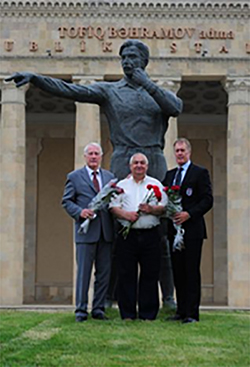
Photo by 1NEWS.az
So virtually every English fan who came to see the match of the English team versus ours, including the author of the winning goal Geoffrey Hurst, took a photo of himself with the monument, showing due respect to the memory of our referee!
Bahramov died in 1993. His son, Bahram Bahramov, was always a welcome guest in the Football Federation, and we will keep inviting him to all the matches like we always did. And everyone knew that Bahramov had the gold whistle awarded to him by the British queen. We knew that the whistle was really hunted after, and that English fans and journalists kept pestering Tofiq with questions about when he would sell the whistle and at what price.
In 2011, Elshad Nasirov and myself contacted Bahram and suggested that he give us this relic for a certain remuneration so that we can show it in the national football museum later (we have this in our plans). Elshad and myself decided that as soon as the football museum opens we'll expose the whistle there. We bought it not for ourselves, but for the future generations, so to say.
– Are you planning to establish a football museum?
– Yes. Now we have a small local museum within the football federation, but we want this to be a museum of a national caliber. That is where this whistle will be kept. For now we put it to one of the most reliable Azerbaijan banks, where we rent a deposit safe with two keys. Elshad keeps one key, and I keep the second. There is some element of a game here, and the principle of joint possession of the relic is observed. There's some game, some fun, and some pride for the country!
Photos by Eteri Kublashvili









